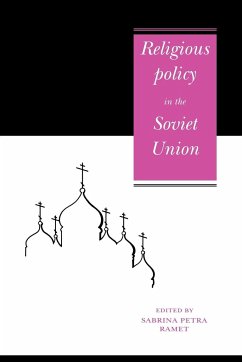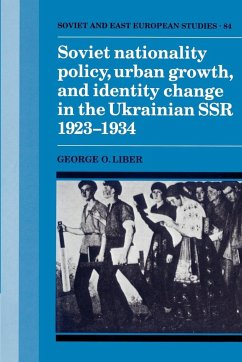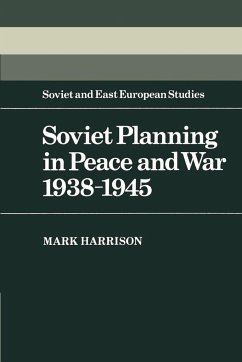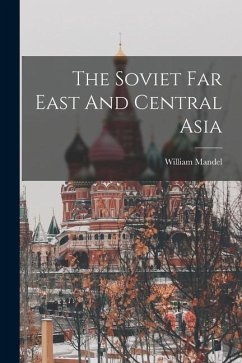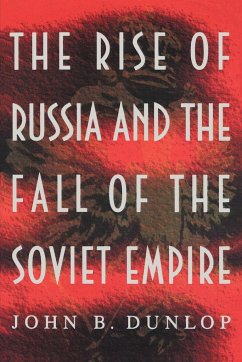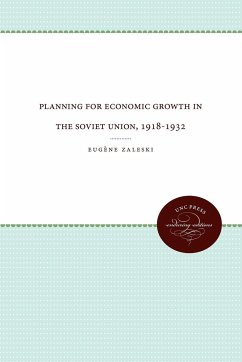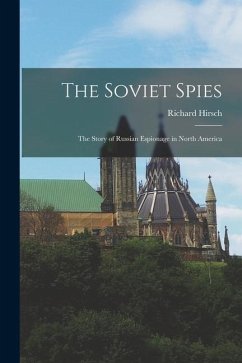
The Struggle for Soviet Jewish Emigration, 1948 1967

PAYBACK Punkte
29 °P sammeln!
A study of the cultural, social, political and international context of the movement for Soviet Jewish emigration.In this important study of Soviet Jewry, Yaacov Ro'i examines the cultural, social, political and international context of the movement for emigration, from the establishment of the state of Israel to the outbreak of the Six Day War. A discussion of the lives of Soviet Jews, based upon oral testimony, shows how Jewish self-awareness arose as a product of the Holocaust, of the founding of the State of Israel, and of popular antisemitism and Soviet policy, and how local groups develo...
A study of the cultural, social, political and international context of the movement for Soviet Jewish emigration.
In this important study of Soviet Jewry, Yaacov Ro'i examines the cultural, social, political and international context of the movement for emigration, from the establishment of the state of Israel to the outbreak of the Six Day War. A discussion of the lives of Soviet Jews, based upon oral testimony, shows how Jewish self-awareness arose as a product of the Holocaust, of the founding of the State of Israel, and of popular antisemitism and Soviet policy, and how local groups developed in clandestine conditions to sustain Jewish cultural interests. The author also analyses the campaign conducted in the West on behalf of Soviet Jewish rights as a whole and emigration in particular. By 1967 Soviet Jewish efforts to maintain even a minimal Jewish existence seemed doomed to constant frustration, and most nationalistically minded Jews accepted that the only way of fulfilling their aspirations was to emigrate to Israel.
Table of content:
Preface; Acknowledgements; Glossary; List of abbreviations; Introduction; Part I: 1. The euphoria of 1948; 2. Jewish consciousness during the 'black years'; 3. The 'thaw', 1953-1956; Part II: 4. The outside world becomes aware of the problem; 5. The campaign in the West gathers momentum; 6. The outside world takes up the issue: 1963-1967; Part III: 7. A first breakthrough: November 1956-December 1959; 8. The early and mid-1960s: the Soviet Jewish national awakening; 9. Conclusion; Notes; Bibliography; Index.
In this important study of Soviet Jewry, Yaacov Ro'i examines the cultural, social, political and international context of the movement for emigration, from the establishment of the state of Israel to the outbreak of the Six Day War. A discussion of the lives of Soviet Jews, based upon oral testimony, shows how Jewish self-awareness arose as a product of the Holocaust, of the founding of the State of Israel, and of popular antisemitism and Soviet policy, and how local groups developed in clandestine conditions to sustain Jewish cultural interests. The author also analyses the campaign conducted in the West on behalf of Soviet Jewish rights as a whole and emigration in particular. By 1967 Soviet Jewish efforts to maintain even a minimal Jewish existence seemed doomed to constant frustration, and most nationalistically minded Jews accepted that the only way of fulfilling their aspirations was to emigrate to Israel.
Table of content:
Preface; Acknowledgements; Glossary; List of abbreviations; Introduction; Part I: 1. The euphoria of 1948; 2. Jewish consciousness during the 'black years'; 3. The 'thaw', 1953-1956; Part II: 4. The outside world becomes aware of the problem; 5. The campaign in the West gathers momentum; 6. The outside world takes up the issue: 1963-1967; Part III: 7. A first breakthrough: November 1956-December 1959; 8. The early and mid-1960s: the Soviet Jewish national awakening; 9. Conclusion; Notes; Bibliography; Index.






